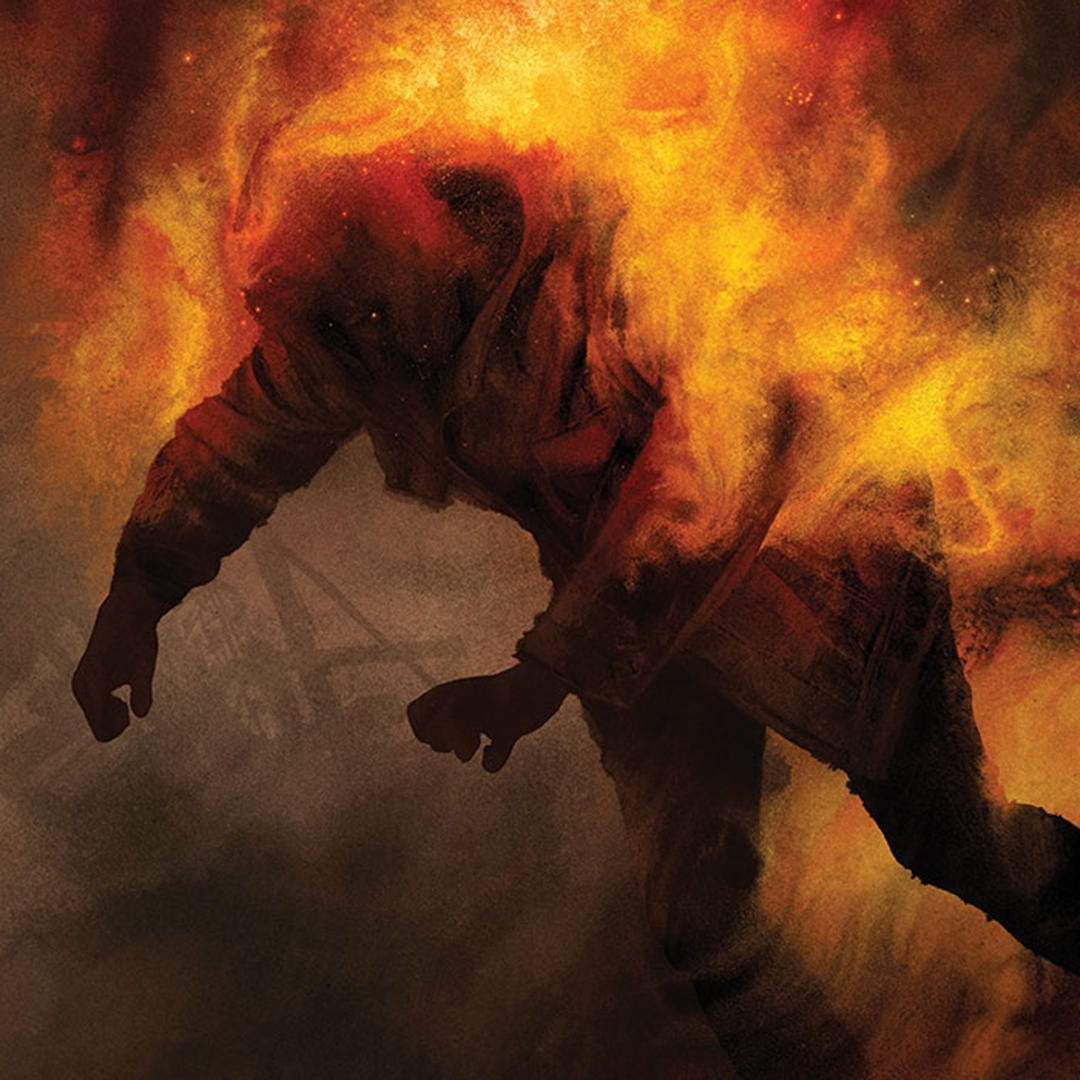How Fahrenheit 451 Predicted the Future
Are you guys worried? Because I'm worried
Notes: All images were illustrated by Sam Weber for The Folio Society’s edition of Fahrenheit 451. Also, this post contains minor spoilers. Go read the book!
A few days ago, I picked up Fahrenheit 451 by Ray Bradbury for the first time in my life. It seemed appropriate given our current climate. The novel follows Guy Montag, a “firefighter” with the job of burning books in a future where owning them is considered criminal. We watch as he becomes disillusioned with his society and begins to question everything he’s been told, eventually committing himself to the preservation of literature.
Throughout the novel, Bradbury details how the general public willingly gave up literature in favour of short-form media. In his imagination, this came through massive, immersive television screens, though it seems even more apt a description for the era of TikToks and Reels that we live in now.
However, the most interesting part of Fahrenheit 451 came in its defense of banning literature. Captain Beatty, the fire captain and the novel’s representative for its regime, explains that books inevitably create divide and violence. Nobody is going to agree with every philosophy, every political argument, every novel—seriously, check out the 1 star reviews of your favourite book on Goodreads—and so, isn’t it better to get rid of them all? As Beatty says, “If you don't want a man unhappy politically, don't give him two sides to a question to worry him; give him one. Better yet, give him none.”
As readers, we know this argument doesn’t make total sense, though it’s difficult to really articulate why.
The other day, a friend of mine downloaded an app called Blinkist. It’s basically a collection of summarized self-help books, condensed into 15 minutes worth of information. I felt conflicted. On one hand, any amount of knowledge is good and people are busy so, in that sense, the app seems like a great idea. Then again, why not just spend 15 minutes a day actually reading a goddamn book?
My opinion of the app was cemented, however, when I discovered that the free plan only offers one pre-selected summary a day, and to access all of them, you’d need to pay for a Premium subscription that’d cost you $99 CAD a year. (Or $183.73 for a Pro plan, which bizarrely contains the exact same features as the Premium plan, except that it also contains Blinkist AI? Who the fuck is paying an extra $84.73 for the AI?)
In 2023, the average American read for less than 16 minutes a day while screen times skyrocket. While most people are busy—a 9-5 job with an hour commute both ways doesn’t leave a ton of room for leisure—it seems that, even if we weren’t, we wouldn’t be using that time to read. Yet apps like Blinkist exist, and users like my friend do, too. Somehow, despite our unwillingness to pick up actual books, we still see the value in literature.
So where exactly does that value come from? Is a novel only as good as its 15 minute summary? If information is what really matters, shouldn’t we all spend our time reading textbooks instead of paperback?
I—and I’d guess that you, too—don’t believe the purpose of reading is just to consume information. The point, I think, is to take an idea and all its complexities, to flip it over in your mind, to chew it thoroughly. After all, when even children’s books have been challenged and banned, we have to conclude that literature is about more than just its base plotline.
Through the censorship of the written word, we are put at risk of losing our record of human experience or, worse, changing our history entirely. And I know I’ve been rambling on about books, but it’s not really even about them. It’s about what we’re willing to sacrifice for the sake of absentminded pleasure.
The devaluation of literature has less to do with reading and more with complacency. As television got more and more popular, Bradbury recognized a growing complacency in the people around him and today, as short-form media reigns supreme, that complacency exists as a fact of life. Book bans aren’t some dystopian fantasy—they’re happening right now with, frankly, not a lot of notice from the general public. Does our silence not make us complicit? Are we allowing ourselves to be distracted by flashing colours just like the citizens in Fahrenheit 451?
I’ll end on this quote from Faber, the novel’s exiled English professor: “Books were only one type of receptacle where we stored a lot of things we were afraid we might forget. There is nothing magical in them, at all. The magic is only in what books say, how they stitched the patches of the universe together into one garment for us.”
TLDR: Read more real books.
Thanks for reading Trina Keeps Trying! You can find my other posts here, and you can read my poetry here. You can also subscribe to receive written works, made with love, straight to your mailbox every week.










I need to read this book
Best TL;DR ever. :)